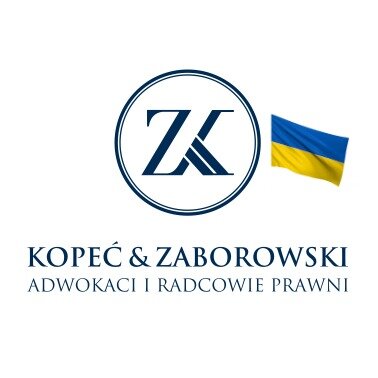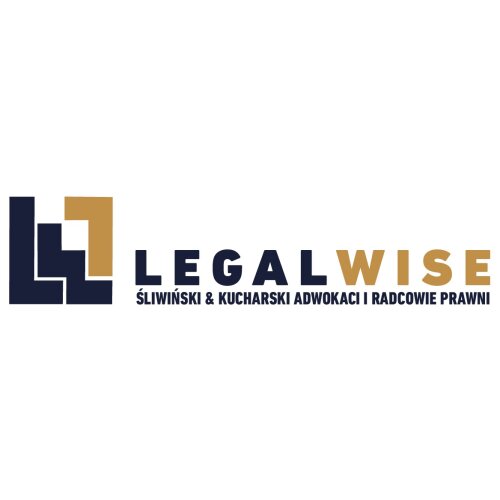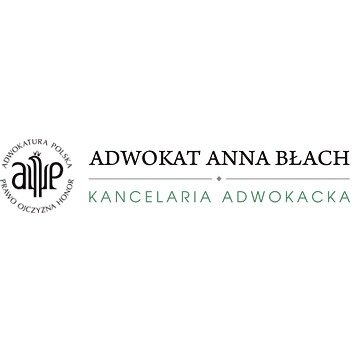Best Conveyancing Lawyers in Warsaw
Share your needs with us, get contacted by law firms.
Free. Takes 2 min.
Free Guide to Hiring a Real Estate Lawyer
List of the best lawyers in Warsaw, Poland
About Conveyancing Law in Warsaw, Poland
Conveyancing is the legal process of transferring property ownership from one person to another. In Warsaw, Poland, conveyancing typically involves the sale and purchase of real estate such as apartments, houses, or commercial properties. The process requires strict adherence to Polish property law, and each transaction must be formalized through a notarized deed. Conveyancing in Warsaw is conducted according to national law, but local customs and regulations can also influence the procedure, particularly concerning required documentation and taxes.
Why You May Need a Lawyer
Engaging a lawyer for conveyancing in Warsaw is highly advisable due to the complexity of Polish property law and the financial stakes involved. Some common situations where legal guidance is essential include:
- Buying or selling residential or commercial property
- Verifying property ownership and existing liabilities (like mortgages or easements)
- Drafting and reviewing sales agreements
- Resolving boundary disputes or inherited property issues
- Navigating local zoning or planning regulations
- Ensuring all required taxes and fees are paid correctly
Lawyers help prevent costly mistakes, protect your interests, and ensure transactions comply with Warsaw and Polish law.
Local Laws Overview
Conveyancing in Warsaw is governed by the Polish Civil Code and specific property laws. All transactions must be finalized in the presence of a notary who drafts and notarizes the real estate transfer deed, which is then filed with the relevant land and mortgage register. Key legal considerations in Warsaw include:
- Land and Mortgage Registry: Every property must be registered, and ownership can only be transferred after registration is updated.
- Due Diligence: Buyers are expected to verify the legal status of a property, including encumbrances and current ownership.
- Foreign Buyers: While EU citizens can generally buy property freely, non-EU citizens often require special permits.
- Taxation: The sale is subject to taxes such as the property transfer tax and sometimes VAT, depending on the type and age of property.
- Seller Disclosures: Sellers are obliged to provide accurate information on the property's condition and legal status.
- Local Office Procedures: Warsaw’s local government offices may require specific forms or steps when registering a property transaction.
Frequently Asked Questions
What is the role of the notary in Warsaw property transactions?
The notary prepares, verifies, and notarizes the transfer deed and ensures the transaction follows all legal requirements. They also submit documents to the land and mortgage register office.
Is it mandatory to use a lawyer when buying or selling property in Warsaw?
While not legally required, using a lawyer is highly recommended. Lawyers protect your interests by reviewing contracts, conducting due diligence, and handling negotiations.
What documents are needed for a property transfer?
Typical documents include proof of ownership, land and mortgage register extract, building permits (when relevant), identification of parties, and property plans. Additional documents might be required in specific cases.
Can foreigners buy property in Warsaw?
EU citizens can buy most properties without restrictions. Non-EU citizens usually need a permit from the Ministry of Internal Affairs, with some exceptions, like purchasing apartments without land ownership.
What taxes are associated with property transactions?
Buyers usually pay a 2 percent property transfer tax on the transaction value, unless the sale is subject to VAT. Additional notary and court fees also apply.
How long does the conveyancing process take?
The process can take anywhere from a few weeks to several months, depending on the complexity of the transaction and responsiveness of the parties involved.
What risks should buyers watch for?
Risks include hidden debts secured against the property, defects in title, disputes over ownership, or planning/zoning violations. These can be mitigated with thorough legal due diligence.
Can property purchase agreements be conditional?
Yes, it is common to include conditions, such as obtaining a mortgage, obtaining planning permissions, or resolving specific encumbrances before finalizing the deal.
What happens if there is a dispute over the property boundaries?
Disputes are typically resolved through negotiation, but may require expert surveys and, if unresolved, court proceedings under Polish civil law.
How are inherited properties handled in Warsaw?
Heirs must formally accept inheritance and register the change of ownership before selling or transferring the property. Legal advice is strongly recommended due to inheritance tax and procedural requirements.
Additional Resources
If you need more information or assistance with conveyancing in Warsaw, the following resources can be valuable:
- Polish Notarial Chamber (Krajowa Rada Notarialna) for guidance on notarial procedures
- Land and Mortgage Register Office (Wydziały Ksiąg Wieczystych) responsible for property records
- Warsaw City Hall - Department of Real Estate Management for local administrative matters
- Ministry of Justice for legal guidelines and regulations
- Local legal aid centers and professional associations specializing in real estate law
Next Steps
If you are considering purchasing or selling property in Warsaw and need legal assistance, follow these steps:
- Gather all available property documents and information about the transaction
- Consult with a licensed property lawyer who is familiar with Warsaw and Polish conveyancing law
- Discuss your needs, possible risks, and legal obligations with your lawyer
- Work with your lawyer and notary to ensure the transaction complies with all legal requirements
- Keep copies of all agreements, notarial deeds, and register entries for your records
Taking these steps will help you navigate the conveyancing process in Warsaw safely and efficiently, minimizing risk and ensuring all legal requirements are fulfilled.
Lawzana helps you find the best lawyers and law firms in Warsaw through a curated and pre-screened list of qualified legal professionals. Our platform offers rankings and detailed profiles of attorneys and law firms, allowing you to compare based on practice areas, including Conveyancing, experience, and client feedback.
Each profile includes a description of the firm's areas of practice, client reviews, team members and partners, year of establishment, spoken languages, office locations, contact information, social media presence, and any published articles or resources. Most firms on our platform speak English and are experienced in both local and international legal matters.
Get a quote from top-rated law firms in Warsaw, Poland — quickly, securely, and without unnecessary hassle.
Disclaimer:
The information provided on this page is for general informational purposes only and does not constitute legal advice. While we strive to ensure the accuracy and relevance of the content, legal information may change over time, and interpretations of the law can vary. You should always consult with a qualified legal professional for advice specific to your situation.
We disclaim all liability for actions taken or not taken based on the content of this page. If you believe any information is incorrect or outdated, please contact us, and we will review and update it where appropriate.

















